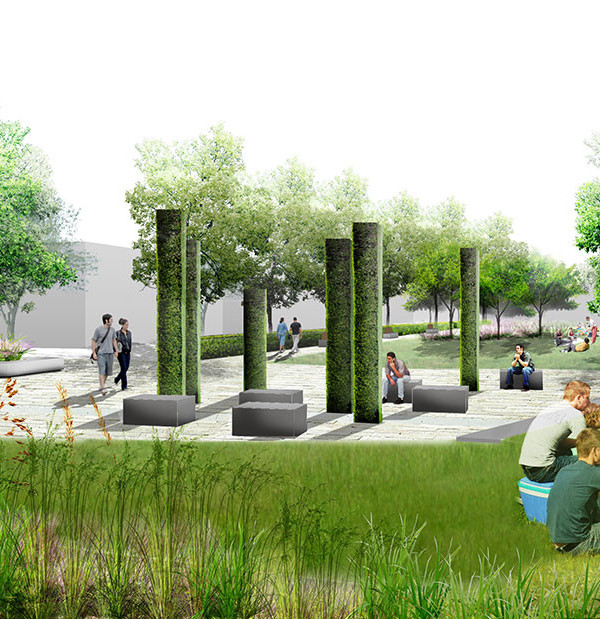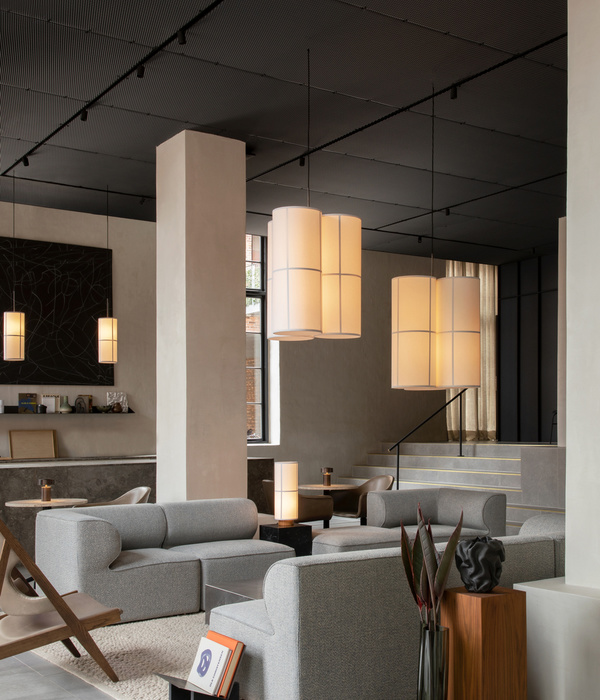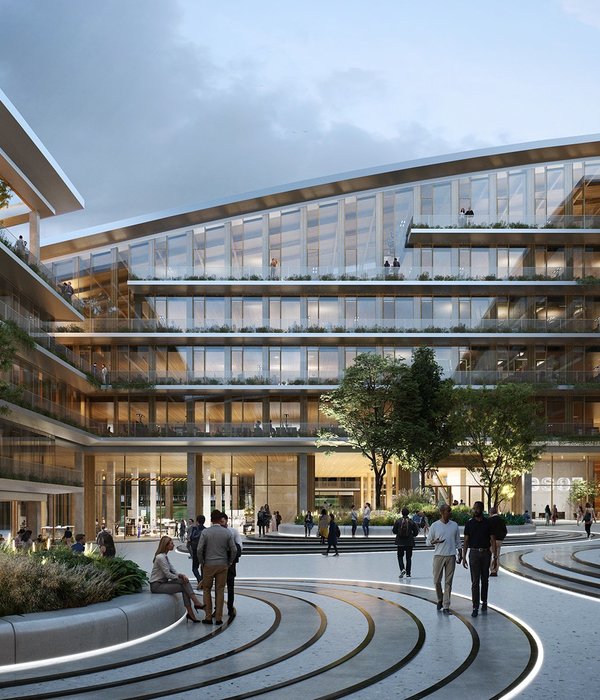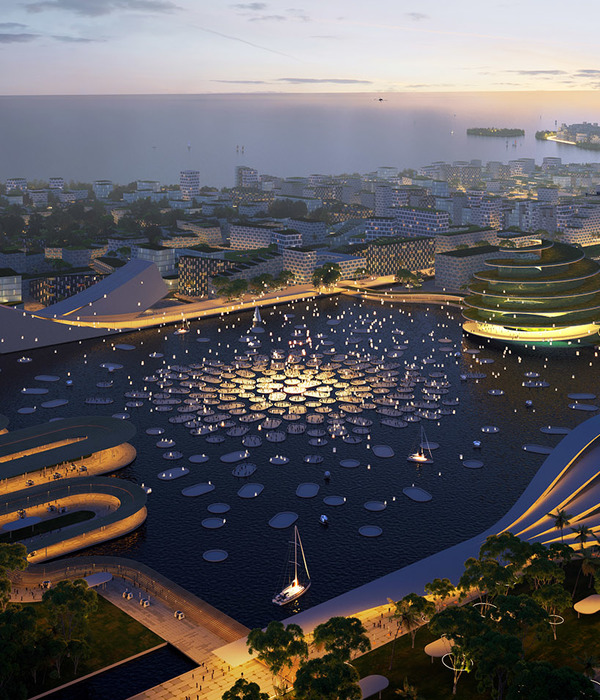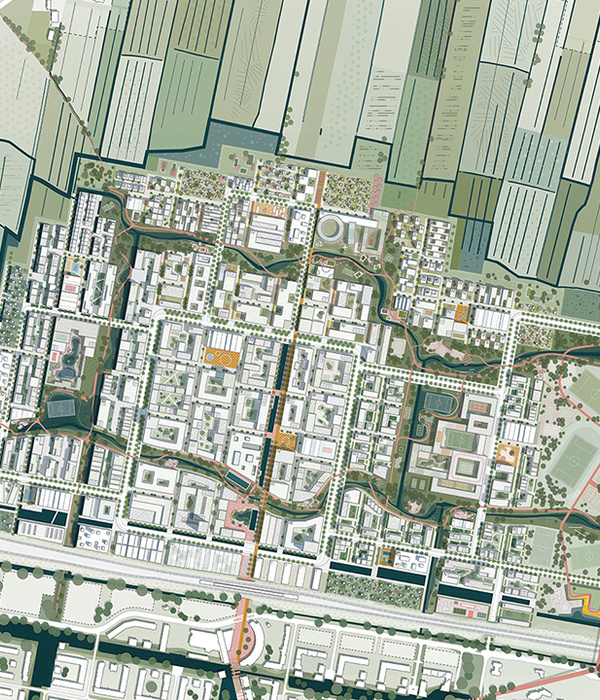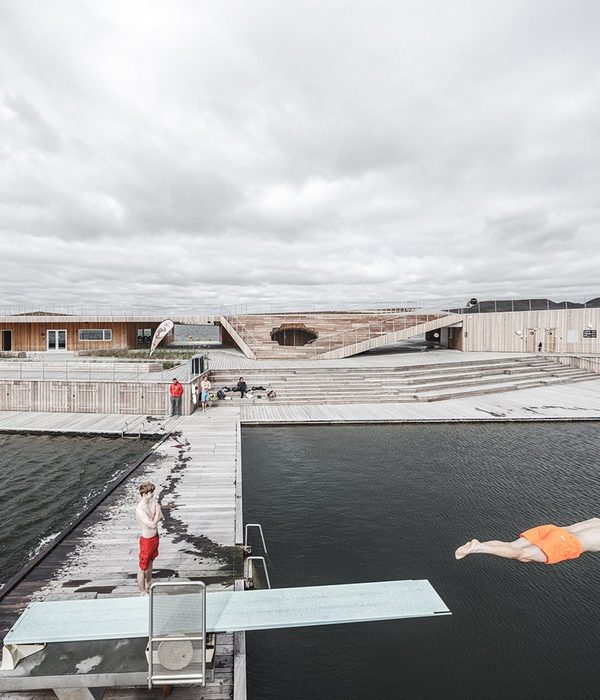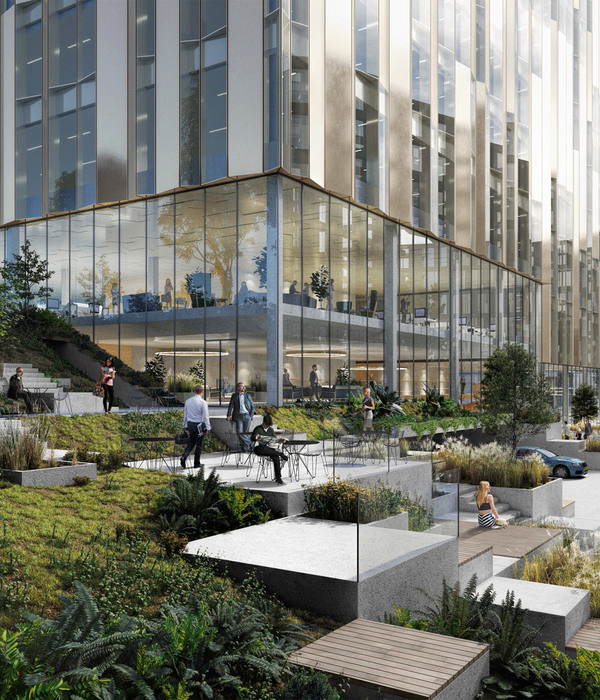该项目是波恩大学新校区的景观设计,跨越Poppelsdorf区、Endenich区和Weststadt区,占地12公顷。这里能为学生提供何种品质的城市景观呢?建筑师建造了一个充满活力的多功能校园,它以庭院和绿地为特征,实现了真正的绿色城市。
A new urban quarter is being created, connecting the districts of Poppelsdorf, Endenich and Weststadt across an area of 12 hectares. But what kind of urban quality will it offer its future students?We envisage a lively mixed-use urban campus which nevertheless is characterised by gardens and green spaces – an attempt at a truly green urbanity.
▼项目鸟瞰,aerial view © Nikolai Benner
莱茵河地区的园艺传统深深地影响了Poppelsdorf地区以及波恩花园,新校区的景观设计也承继了这些传统。新校区被誉为“花园中的城市”,在这里,学生们可以一起学习、生活。
The gardening tradition of the Rhine region is closely linked with Poppelsdorf and the Bonn gardens. The new campus design picks up on these traditions.The campus as a “city in the garden”, where students can study and live together.
▼顶视图,(左侧)教学楼,(右侧)图书馆,top view,(left)teaching buildings,(right)library © Nikolai Benner
▼图书馆前广场鸟瞰,aerial view of library square © Nikolai Benner
▼不同绿植与座椅结合,combination of different green plants and seats © Nikolai Benner
▼细节,details © Nikolai Benner
该校区的景观特征源自当地的园艺传统。在与周边地区的竞争中,形成了自己的独特形象,在密集和僻静空间并存的地区中创造出多层次的互补空间。
The campus therefore derives its future identity from the site’s gardening tradition. It develops its own unique profile in competition with the surrounding locations. The Poppelsdorf campus is a multilayered complementary space in which areas of high density are interlaced with places of quiet concentration.
▼教学区鸟瞰,aerial view of teaching buildings © Nikolai Benner
▼庭院,garden © Nikolai Benner
▼不同材质的硬铺,pavement of different materials © Nikolai Benner
▼教学楼旁,停车与绿化结合,beside teaching buildings, parking and greening are combined © Nikolai Benner
▼人车分流,separation of pavement and cycle lanes © Nikolai Benner
▼细节,details © Nikolai Benner
该地区的再开发并没有抹去园艺传统,而是重新激活空间,放眼未来。
The redevelopment of the area does not erase its gardening tradition, but consciously reactivates it and projects it into the future.
▼夜景,night view © Nikolai Benner
{{item.text_origin}}



